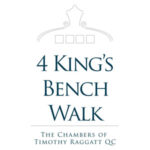Sarah Carmichael discusses limitation and adjudication ‘Limitation is not ordinarily a concern at the outset of adjudication but the limitation bar might descend to block later referral of the underlying dispute to a court or arbitrator for final determination.’The Housing Grants, Construction and Regeneration Act 1996 (the Act) introduced adjudication as an expedient method to …
Continue reading "Limitation: Stop the clock?"
This post is only available to members.
David Sawtell looks ahead from the Medirest judgment ‘The clearest point to be taken from the Medirest litigation is that the court will scrutinise the express terms of the contract.’The High Court and Court of Appeal decisions in Mid Essex Hospital Services NHS Trust v Compass Group UK and Ireland (t/a Medirest) [2012]; [2013] have …
Continue reading "Contract: Keeping the faith"
This post is only available to members.
Jehan-Philippe Wood analyses Bieber v Teathers, which sheds new light on how a Quistclose trust is defined in the context of partnerships It is one thing to accept that a trust can exist alongside a contractual arrangement. It is quite another to try to reconcile competing arrangements. A Quistclose trust (the name derives from Barclays …
Continue reading "Quistclose Trusts: Beware of importing principles of equity into commercial law"
This post is only available to members.
Wills & Trusts Law Reports | January/February 2013 #126The defendant (Teathers) promoted a series of unregulated collective investment schemes intended to take advantage of tax reliefs available on investments in TV productions. UK tax payers were entitled to write down 100% of any expenditure on a film or TV production certified as a British Qualifying Film. The schemes had not proved successful. Many of the productions were commercial failures and a number of them had not been certified as British Qualifying Films and were illegible for the tax relief that was the rationale behind the schemes. The claimants argued that money invested in th...
Wills & Trusts Law Reports | November 2012 #124Bernard Trevor Matthews (testator) died on 25 November 2010 and was survived by the defendants, who were his son, longstanding partner and three adopted children respectively. His estate included a property in France called Villa Bolinha estimated at €15m and property elsewhere estimated at £40m. Although (as he was aware) French law only permitted the testator to leave the second defendant 25% of Villa Bolinha since his children were as of right entitled to 75%, he made a will in France (French will) leaving it to her absolutely. By a letter of wishes, he nevertheless hoped that his chi...
John Bennett contemplates the extent to which the common law can regulate the tendering process The recent case law has, if anything, added more confusion to the implied contract argument rather than determining those circumstances where it will apply and the precise scope of the doctrine.This article outlines the development of UK common law rules …
Continue reading "Practice: The long arm of the (common) law"
This post is only available to members.
Edward Rowntree looks at the need to comply with the letter of the rules Despite its original attempt to make a Part 36 offer, the claimant was able to resile from it by reason of its own failure to comply with the technicalities. Although the heading to this article ought to be unnecessary, it is …
Continue reading "CPR: Beware Part 36"
This post is only available to members.
Michael Smith reports on a recent high court decision concerning the complex issue of triggering events for overage payments ‘Overage agreements continue to present a myriad of traps for the unwary. The importance of a seller ensuring that adequate security protecting the seller’s right to overage is put in place cannot be overstated.’Renewal Leeds Ltd …
Continue reading "Overage: Implied obligations"
This post is only available to members.





